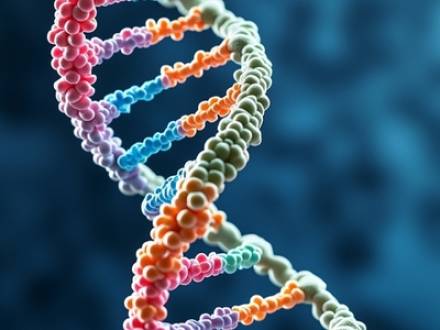How Far Is Too Far? DNA and Privacy in Maryland Homicides
 Twenty-seven years after a nurse was killed in a Maryland hospital, a suspect was identified through genetic genealogy – matching a killer’s DNA to a relative on a genealogy site like Ancestry. The nurse’s murder was one of the oldest violent crime mysteries in Prince George’s County, although cold case detectives continued to interview witnesses and track down leads. In the last five years, the killer’s DNA led the detectives down the genealogy path, which led to a match with the nephew of the killer.
Twenty-seven years after a nurse was killed in a Maryland hospital, a suspect was identified through genetic genealogy – matching a killer’s DNA to a relative on a genealogy site like Ancestry. The nurse’s murder was one of the oldest violent crime mysteries in Prince George’s County, although cold case detectives continued to interview witnesses and track down leads. In the last five years, the killer’s DNA led the detectives down the genealogy path, which led to a match with the nephew of the killer.
Genetic genealogy databases are increasingly being used, but can be controversial. By tracing partial DNA matches uploaded by relatives to consumer sites like Ancestry and 23andMe, investigators can crack old cold cases. However, this practice has raised some serious ethical and constitutional concerns. Is law enforcement building family-wide genetic "dragnets" with no consent?
Maryland and other states continue to wrestle with balancing public safety against genetic privacy, triggering court challenges and new legislation regarding the limits of genetic surveillance. If you or a loved one has been identified as a suspect in a crime based on the DNA of your relatives, consulting with a highly experienced Montgomery County, MD criminal defense lawyer can be the best step you can take.
What Is the Difference Between Consumer DNA Databases and State-Run CODIS Samples?
The primary differences between consumer DNA databases and state-run CODIS samples lie in the purpose, the type, and the amount of genetic information they store, along with privacy regulations and access to law enforcement. The purpose of CODIS is specifically to generate investigative leads for law enforcement, identify missing persons, and link unsolved crimes. The purpose of genealogy sites is to explore ethnic origins, provide potential health insights, and identify relatives.
Consumer genealogy sites store a vast amount of genetic information using Single Nucleotide Polymorphisms (SNPs) across the whole genome. CODIS stores profiles based on a limited set of specific genetic markers called Short Tandem Repeats (STRs), which are not used for health information or physical traits. CODIS markers are sufficient for a definitive one-to-one match to a known individual or a close (first-order) relative, but not to distant familial relationships like genealogy sites.
Regarding privacy, genealogy sites are privately owned and usually require a warrant for law enforcement to access private databases. However, users can choose to upload their personal DNA data to open-source databases that law enforcement can search without a warrant. CODIS is managed by the FBI at the national level and is governed by strict federal and state laws that limit access to law enforcement agencies for specific purposes. The databases do not contain personally identifying information like names.
What is the Maryland Genetic Genealogy Act of 2021?
Maryland was the first state to establish strict regulations for how law enforcement can use forensic genetic genealogy (FGG) under the Maryland Genetic Genealogy Act of 2021. The ACT requires judicial authorization for FGG searches, restricting their use to serious violent crimes (murder, rape, and sexual assault) after all other leads have been exhausted. All DNA samples and information must be destroyed upon completion of the investigation.
Fourth Amendment Privacy Concerns and Ethical and Civil Liberties Concerns
The question becomes whether searching a relative’s uploaded DNA profile amounts to an unreasonable search under the Fourth Amendment. There is definitely the potential for misusing genealogy sites when investigating crimes, and there can be cross-jurisdictional issues when an out-of-state database is used to identify a Maryland suspect. There are anticipated legislative updates coming in 2026 that may expand judicial oversight for law enforcement using genealogy databases when investigating crimes.
Contact a Silver Spring, MD Criminal Defense Lawyer
If you are facing criminal charges in Maryland involving genetic genealogy evidence, you need a highly skilled Montgomery County, MD defense attorney from The Law Offices of Gerstenfield & Demirji, PC. who understands the science and the law. We are available 24/7, have good relationships with local prosecutors, and never hesitate to aggressively defend our clients. Call 301-589-9500 to schedule your free consultation. We are fluent in Arabic and Spanish.














